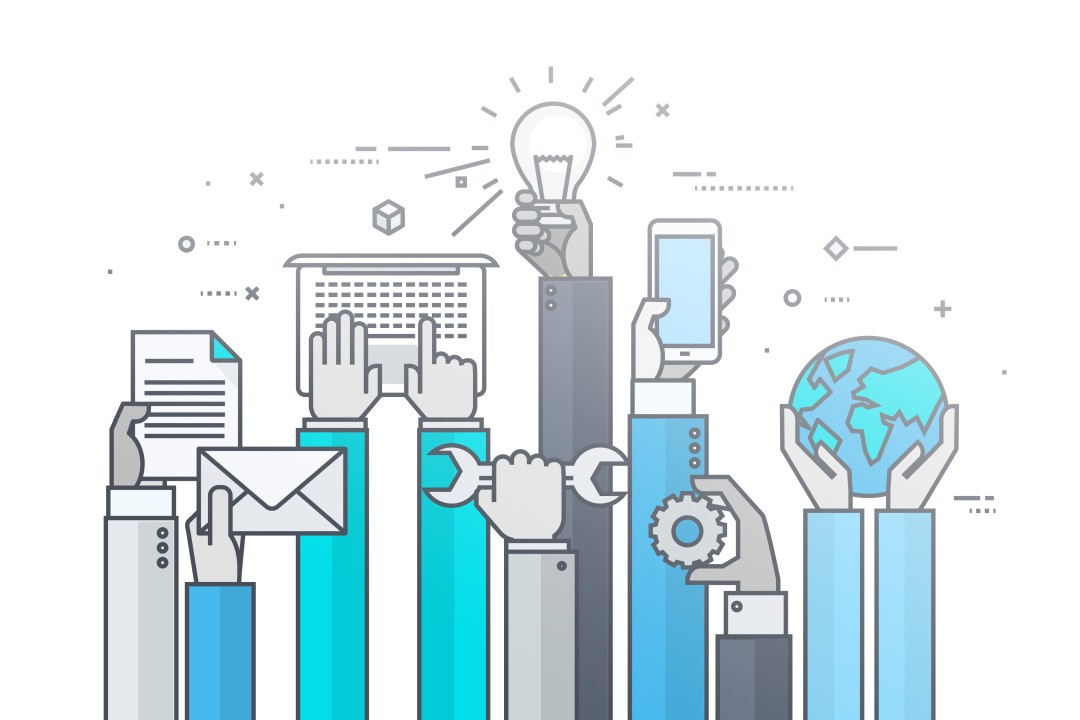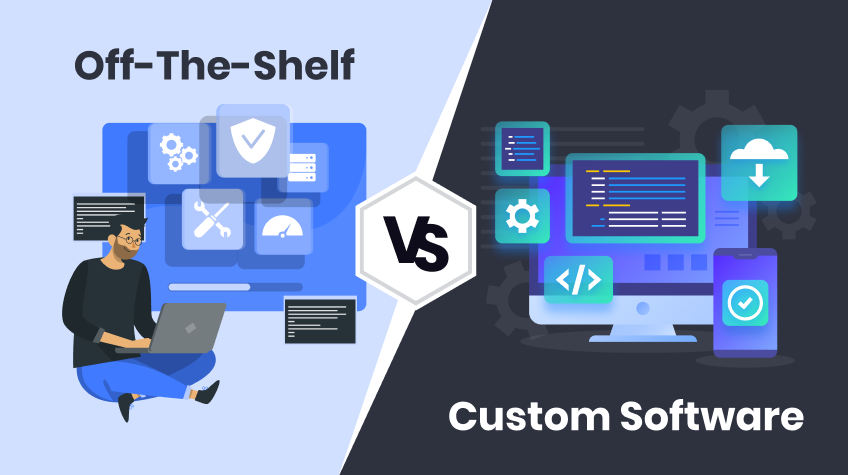In today’s fast-paced digital landscape, businesses are constantly seeking ways to gain a competitive edge, streamline operations, and deliver exceptional customer experiences. While off-the-shelf software solutions offer a quick fix, they often fall short in addressing unique business needs. This is where custom software development steps in, offering tailored solutions that align perfectly with an organization’s specific requirements. But is it truly worth the investment? The answer lies in understanding and quantifying the Return on Investment (ROI) of custom software.
For businesses in bustling hubs like London, partnering with a custom software development company in London can be a game-changer. Whether you’re looking for a software development company to build a bespoke CRM to automate complex workflows, understanding the potential impact is crucial.
Beyond the Initial Cost: Why Custom Software Pays Off
The initial investment in custom software can seem significant compared to readily available alternatives. However, this upfront cost pales in comparison to the long-term benefits and the substantial ROI it can deliver. Here’s how custom software translates into tangible business value:
1. Enhanced Efficiency and Productivity:
- Automation of Repetitive Tasks: Custom software can automate manual, time-consuming processes like data entry, report generation, and inventory management. This frees up your team to focus on higher-value activities, leading to significant time savings and reduced human error.
- Streamlined Workflows: Designed to mirror your unique business processes, custom solutions eliminate redundancies and bottlenecks, ensuring a smooth and efficient flow of operations. Many businesses report 25-50% increases in process efficiency after implementing automation through custom software.
2. Significant Cost Savings Over Time:
- Elimination of Licensing Fees: Unlike off-the-shelf software that often demands recurring subscription or licensing fees, custom software typically involves a one-time development cost, leading to substantial savings in the long run, especially for large organizations.
- Reduced Operational Inefficiencies: By optimizing processes and minimizing errors, custom software reduces operational expenses associated with rework, compliance issues, and wasted resources.
- Consolidation of Multiple Tools: Instead of juggling various disparate software, a single custom solution can integrate functionalities, reducing the need for multiple licenses and training.
3. Gaining a Competitive Advantage:
- Tailored Functionality: Custom software gives your business unique features and capabilities that off-the-shelf solutions simply cannot offer. This differentiation allows you to stand out in the market, meet specific customer demands, and respond rapidly to market changes.
- Improved Customer Experience: Bespoke applications can be designed to provide personalized customer interactions, enhancing satisfaction and loyalty.
- Faster Adaptability: As market conditions evolve, custom software can be quickly modified and scaled to meet new challenges or seize emerging opportunities, giving you agility that standard software lacks.
4. Superior Data Insights and Strategic Decision-Making:
- Centralized Data Management: Custom solutions can consolidate data from various departments, providing a unified view of critical information. This eliminates data silos and empowers decision-makers with accurate, real-time insights.
- Custom Reporting and Analytics: Generate reports and dashboards tailored to your specific KPIs, enabling proactive decision-making and better strategic planning.
5. Scalability and Future-Proofing:
- Growth Aligned: Custom software is built to scale with your business. As your operations expand and requirements change, the software can be updated and modified without needing a complete overhaul. This ensures your technology infrastructure supports long-term growth.
- Exclusive Ownership: With custom software, you own the intellectual property and source code, providing complete control and flexibility for future enhancements and integrations.
Quantifying the ROI: A Practical Approach
Calculating the ROI of custom software isn’t always straightforward, as it involves both tangible and intangible benefits. However, a systematic approach can help you make a compelling case for your investment. The general formula for ROI is:
ROI=CostofInvestment(GainfromInvestment−CostofInvestment)×100
Here’s how to apply it:
1. Identify All Costs:
- Development and Implementation Costs: This includes design, coding, testing, and deployment. When seeking a top software development company in London , ensure transparency in their pricing models.
- Infrastructure Costs: Any new hardware or cloud services required.
- Training Costs: For employees to effectively use the new system.
- Maintenance and Support Costs: Ongoing expenses for updates, bug fixes, and technical assistance (often estimated around 20% of the initial development cost annually).
2. Calculate Tangible Benefits (Quantifiable Gains):
- Cost Savings:
- Reduced licensing fees for replaced software.
- Decreased labor costs due to automation (e.g., hours saved per employee).
- Lower error rates leading to less rework and waste.
- Reduced paper usage or physical storage costs.
- Increased Revenue:
- New sales opportunities created by unique software features.
- Improved customer retention leading to higher lifetime value.
- Faster time-to-market for new products or services.
- Enhanced sales efficiency or lead generation.
- Productivity Gains:
- Number of hours saved across departments.
- Increased output or throughput in production.
Example Calculation (Illustrative):
Let’s say a custom software development company in London builds a new inventory management system for £100,000. In the first year, you project:
- Cost Savings: £30,000 (from reduced errors and manual labor)
- Increased Sales: £20,000 (due to optimized stock and faster order fulfillment)
- Total Gain = £30,000 + £20,000 = £50,000
ROI=£100,000(£50,000−£100,000)×100=−50%
While a negative ROI in the first year might seem discouraging, remember that custom software is a long-term investment. The savings and gains typically compound over time, leading to a strong positive ROI in subsequent years.
3. Estimate Intangible Benefits (Non-Monetary Value): While harder to quantify directly, these significantly impact long-term success:
- Improved employee morale and satisfaction.
- Enhanced brand reputation and customer trust.
- Better data security and compliance.
- Increased agility and responsiveness to market changes.
- Competitive differentiation.
4. Track Key Performance Indicators (KPIs): Before and after implementing the custom software, establish and monitor relevant KPIs. This could include:
- Process completion time
- Error rates
- Customer satisfaction scores
- Employee productivity metrics
- Sales conversion rates
- Operational costs
Choosing the Right Partner in London
When considering custom software, selecting the right software development company in London is paramount. Look for firms with a proven track record, strong client testimonials, and a clear understanding of your industry. A good custom software development company in London will not only build your software but also consult with you on how to best maximize its ROI, ensuring it aligns with your strategic business objectives.
Conclusion
Investing in custom software is a strategic decision that, while requiring an initial outlay, promises significant and measurable returns. By carefully quantifying both the tangible and intangible benefits, businesses can clearly see how a tailored solution can enhance efficiency, reduce costs, provide a competitive edge, and ultimately drive sustainable growth. If your business is ready to unlock its full potential, exploring custom software development with a reputable software development company in London could be the smartest move you make.




